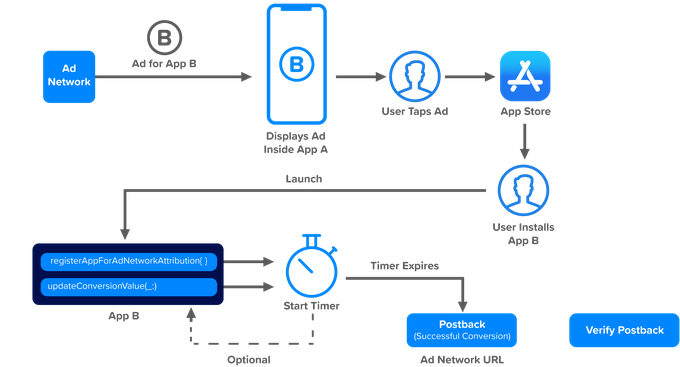
It’s now been six months since Facebook took out full-page ads in the New York Times saying that Apple’s privacy moves will destroy small businesses.
However, anyone who knows how much of Facebook’s business model relies upon effective advertising (98.5%, to be exact) quickly realized why they were so mad – Apple’s move directly impacts the core of their business.
Yet while the vast majority of Facebook’s $86B in revenue comes from advertising on its core platform, due to the amount of data it already has about its users from their profiles, they’re still sitting pretty.
Yes, SMB advertisers will be affected by the reduction of IDFA data, but the biggest hit comes to the 19,000 app developers that monetize using Facebook’s Audience Network (FAN). There are 80,000 mobile apps in FAN, and 40% of the top 500 mobile apps are part of the network.
If FAN is no longer going to be a viable source of revenue for the company, (they cited a 50% decline), it might be sunsetted. As they stated, “despite our best efforts, [iOS 14] may render Audience Network so ineffective that it may not make sense to offer [it] in the future.”
So if you’ve been using Facebook for your app growth and brand campaigns, you need to consider how the removal of those third-party apps will affect your results. If you’ve been using third-party networks (like AdColony), your performance will be affected, of course, but networks have been preparing their SDK technology and partners for the changes and aren’t just going to disappear on you! Be wary, though – many are promising “solutions” that Apple will likely strike down…
What will the real solutions of the future look like? Apple is saying that SKAdnetwork is the only viable approach, as Kochava’s CEO Charles Manning observes. But there is an intrinsic problem with that statement, one that is being massively flagged by US legislation as we speak.
SKAdNetwork principle scheme
By making SKAdnetwork the only solution, Apple is essentially eliminating the existing marketplace. The company is taking a multibillion-dollar sector of an industry and trying to own it outright, “favoring its own service and creating a disadvantage for rivals,” a clear breach of antitrust law. Apple should know this well, with the App Store lawsuit and the never-ending saga with Epic Games.
Apple isn’t the only company with antitrust concerns. Google is under fire for its cookie deprecation, with a UK regulator saying its a clearly harmful move to the tech giant’s competition.
It could also block Google’s mobile tracking solution they’re calling FLoC, or the Federated Learning of Cohorts. FLoC essentially groups people into interest groups (e.g., football fans, retired travelers) through bits of data from websites that are put into its Privacy Sandbox. Why? Because that move could also harm competition.
Additionally, while FLoC is a solid idea in theory, some argue that this is merely replacing “old tracking” with “new tracking,” and it’s still tracking. Note, too, that it’s not being tested in Europe or countries where GDPR is present, so it’s possible that FLoC isn’t as “privacy-compliant” as it aims to be.
Whatever our privacy-compliant future turns out to be, what this comes down to for developers is that you’re going to have to shore up revenue streams and diversify your monetization strategy. Old, proven ways (like FAN) can’t be relied upon anymore.
Privacy is important, yes, but these latest moves have truly shaken the industry, from the tech giants to small business advertisers to all mobile publishers.
The good news is that ad-tech and mobile have traditionally been extremely agile, and we collaborate on common standards. Look how fast we – well, some of us! – reacted to the massive changes that iOS 14 brought.
Still, even with what we have achieved in a short period of time, I’m looking forward to the maturation of the industry, because while short-term winners have emerged by reacting, long-term winners are those that anticipate. The app publishers who win, long-term, will already have an idea of their exit strategy and/or their long-term growth plan, no matter what additional changes occur.












